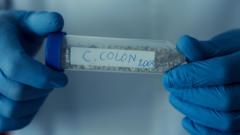In a groundbreaking discovery over two decades in the making, scientists are set to shed light on the debated origins of Christopher Columbus. Despite historical records claiming Columbus was born in Genoa, various countries have laid claim to the explorer as one of their own. In 2003, DNA samples were collected from bones believed to belong to Columbus, his son Hernando, and his brother Diego. Using advanced DNA techniques, researchers have confirmed the authenticity of these remains, debunking the Dominican Republic's claim to his remains. As part of a documentary by RTVE, researchers will present findings set to challenge long-held beliefs about Columbus's origins. The documentary will air on a national holiday in Spain, coinciding with Columbus's historic arrival in the Americas in 1492. While eight potential birthplaces remain, including regions in Spain, Portugal, and Italy, results may subvert conventional views. Although some advocate for the traditional Genovese theory, the researchers suggest revelations could revolutionize our understanding of Columbus. The full scientific findings will be shared in November. As anticipation builds, viewers can tune into the documentary in Spain and potentially see centuries-old narratives overturned.
Unveiling Christopher Columbus's True Origins Through DNA Discovery

Unveiling Christopher Columbus's True Origins Through DNA Discovery
A documentary promises groundbreaking revelations about Columbus's origins, challenging historical narratives.
Researchers have employed DNA analysis to delve into Christopher Columbus's origins, questioning the traditional belief that he was from Genoa.




















